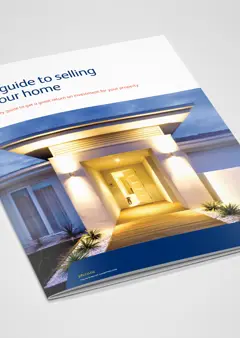How much is your home really worth?
Residential

By continuing, you agree to our terms of use and privacy policy
Instructions on how to reset your password will be sent to the email below.
Your password reset link has been sent. Please check your inbox and follow the instructions provided.
Residential

Putting an accurate price on your home is key to selling. If you overprice it, you risk sitting on the market for too long, but if you underprice it, you could miss out on potential gains. Here is some expert advice to ensure you're not selling yourself short.
Knowing your competitors helps you get a clearer picture of your home's worth. Real estate agents rely heavily on comparative market analysis (CMA) when determining a property's price. This involves comparing your home to similar properties recently sold in your neighbourhood, focusing on factors like size, condition and features.
Our real estate agents begin with a broad view of the market and how other homes are doing. By comparing your house side by side with others and adjusting for extra or missing features, you can estimate a price that accurately reflects its value.
Your home might be one of many similar properties in the area, and with tight competition, it can be challenging to stand out. That's why the specifics of your home matter so much. Features like the number of bedrooms, bathrooms, garage space and overall square footage all influence the price, as they indicate more living space. Its condition can also be decisive - what's the value of multiple rooms if they require significant work?
Negative factors must also be considered, such as proximity to a highway or train tracks where noise could be disturbing. While positive features add value, understanding the impact of negative aspects helps determine necessary price adjustments.
Significant upgrades, such as adding a new kitchen, modernising bathrooms or installing energy-efficient smart features, can add value to your home. However, not all upgrades are equal. It's essential to know which improvements matter the most.
Additions and upgrades can significantly increase a home's asking price - it's important to know which renovations add the most value. Even simple cosmetic upgrades, such as fresh paint or new flooring, can make a noticeable difference in how buyers perceive the property.
And since New Zealanders own the most cars per capita in the world, with approximately 4.59 million licensed vehicles, consider upgrading your garage door. Replacing it could yield about 85% more return on your investment.
OpenExpert highlights the importance of having a deep understanding of the local market, including the intricacies of your neighbourhood - such as how long properties typically stay on the market and knowledge of historical pricing trends. It also involves knowing whether the home you're selling is in an area that appeals to families, investors or retirees, depending on its specific characteristics.
Factors to consider include local amenities such as schools, parks, public transport, and employment rates and income levels of residents in the area. Top-rated schools can make your home sell for more, as they are an attractive feature for buyers with children. These aspects provide a clearer picture of what people are willing to pay for your property.
For instance, Auckland has a consistent housing shortage and an overpriced market. The median household income is 11 times lower than the median house price, while the income-to-house-price ratio should ideally be around three to be considered affordable.
In contrast, smaller regions may experience slower price growth. Therefore, assessing your local market before setting your price is important.
There will always be a temptation to overprice. Many homeowners believe their property is worth more than the average market price, which often doesn't align with what buyers are willing to pay. People tend to look for lower price points.
One common tip is to price your home slightly lower than similar properties in the area to attract more buyers and potentially generate multiple offers. When there's competition, offers are likely to exceed the asking price.
Even if you price your home on the lower end, many families are willing to go over their ceiling price if they find a house they love or can genuinely see themselves enjoying. The price point is among the critical factors that influence buyers' decisions.
There are many strategies that real estate agents use when pricing a home. Think of it as a negotiation process - setting a realistic price will bring you closer to closing the deal. Expect too much, and you'll likely face disappointment. Price too low, and you may end up with less than your home is truly worth.
The best thing to do is consult a real estate agent. An estimate based on this advice will provide you with a well-informed figure to help guide your home-selling decisions.

About the Author: Evelyn Long is the Editor-in-Chief of Renovated Magazine and a writer passionate about sharing real estate tips with aspiring homeowners around the world. She regularly contributes to sites like the National Association of Realtors and Allioo.
From the top of the North through to the deep South, our salespeople are renowned for providing exceptional service because our clients deserve nothing less.
Managing thousands of rental properties throughout provincial New Zealand, our award-winning team saves you time and money, so you can make the most of yours.
With a team of over 850 strong in more than 88 locations throughout provincial New Zealand, a friendly Property Brokers branch is likely to never be too far from where you are.
